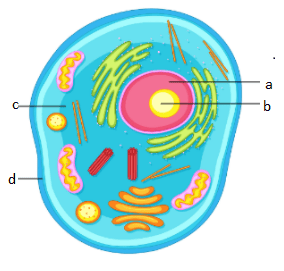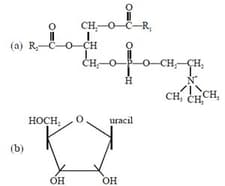Biomacromolecules
Biomacromolecules: Overview
This topic describes biomolecules. It describes the concepts of biomolecules like protein, lipids, carbohydrate, vitamin, etc., along with their characteristics, composition cell membrane and cell structure.
Important Questions on Biomacromolecules
Which of the following substance plays an essential role in the structure of cell membrane?
The conversion to acetic acid to cholesterol is a _____ (catabolic/anabolic) process.
The conversion to acetic acid to cholesterol is a catabolic process.
Name the parts in the given image of a cell.

What are the four major components of a cell?
The sum total of different types of biomolecules, ions and compounds present in the cell is called
All elements that are present in the sample of the earth's crust are also present in a sample of living tissue.
What is present in the acid cellular pool in the process of extraction of biomolecules.
Choose the correct statements.
A. Acid soluble fractions have more than one thousand Dalton.
B. Common acid used in the living cell compound analysis is hydrochloric acid.
C. Number of carbons in arachidonic acid is 20.
D. Serine is the hydoxy methyl group amino acid.
Lipids associated with cell membrane are _____.
Match column I and column II and select the correct option.
| Column I | Column II |
| A) Biological pigments | 1) Sodium chloride |
| B) Chemical messengers | 2) Steroids |
| C) Important constituent of blood | 3) Prostaglandins |
| D) Four carbon rings | 4) Terpenes |
Select the correct option for the below structure with its occurrence.

Biomacromolecules are acid insoluble fraction in the cell. These includes?
Higher animals cannot synthesize few fatty acids which are very essential for their growth and development. These fatty acids are typically
Which of the following is an example of saturated fatty acid?
When we homogenise any tissue in an acid, the acid soluble pool represents
